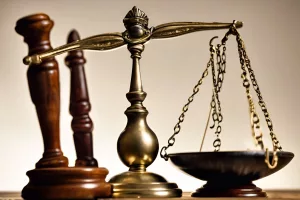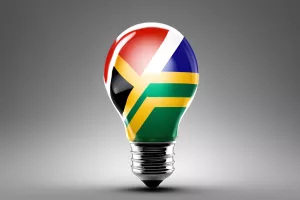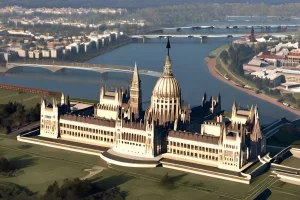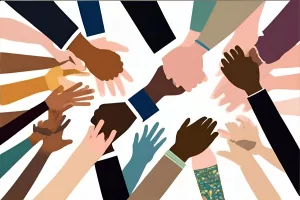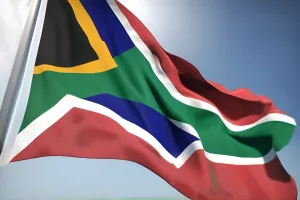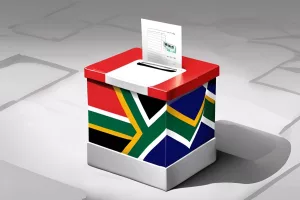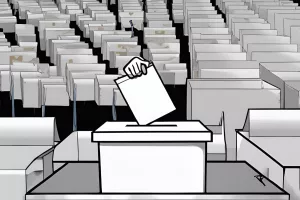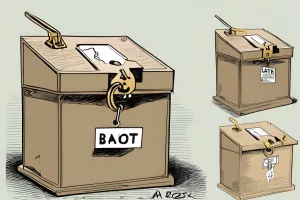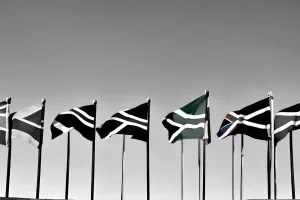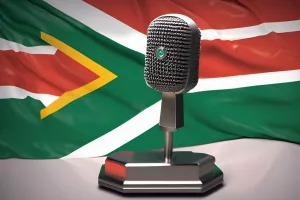Elon Musk’s role in government efficiency efforts, especially during Trump’s time in office, is causing a stir. Even though he wasn’t an official government worker, his strong influence led to legal troubles, with fourteen states arguing he acted beyond his advisory role. Critics worry about one person’s power in the government and how it mixes private business interests with public service. Musk’s actions and connections to his companies, like Tesla and SpaceX, raise questions about transparency and fairness in government. This situation highlights the tricky balance between innovation and democratic accountability in today’s world.
On February 13, 2025, President Cyril Ramaphosa will speak to Parliament in a highly anticipated event that marks a key moment in South Africa’s democracy. His address aims to tackle important issues like jobs, education, and healthcare, reflecting the hopes and concerns of everyday citizens. The event will be broadcasted live, allowing people across the nation to connect with their government in realtime. As South Africa’s political landscape evolves, this moment symbolizes the power of dialogue and the country’s journey toward a brighter future.
Deputy President Shipokosa Paulus Mashatile emphasized the need for scientific and evidencesupported strategies to handle socioeconomic complexities, identified key issues integral to the nation’s developmental dialogue, including countering the impacts of climate change, capitalizing on the advantages of the African Continental Free Trade Area, and supporting peace initiatives on the continent. The conference reflected on the struggles, achievements, and aspirations of a nation striving to uphold principles of justice, equality, and social transformation.
South African group AfriForum has taken legal action opposing the appointment of deposed judge John Hlophe to the Judicial Service Commission (JSC), arguing that it breaches the National Assembly’s constitutional duty and risks the judiciary’s reputation and independence. Hlophe was found guilty of serious judicial misconduct in 2021 and dismissed by President Cyril Ramaphosa. AfriForum’s CEO Kallie Kriel stated that it was “inconceivable” that someone previously regarded as unfit to serve as a judge could evaluate the morals and competence of prospective judges.
The Government Communications and Information System (GCIS) is a critical body at the center of South Africa’s democracy, disseminating government messages while gathering public opinions to cultivate the country’s developmental strategy. The GCIS is a constant reminder that the government operates as a system requiring an inclusive and comprehensive communication methodology to successfully push a developmental agenda. The government’s commitment to enhancing communication and information systems is evident in the 2024/25 budget allocation for Brand SA and MDDA.
Experience the vibrant heartbeat of democracy in South Africa’s National Assembly, where diverse voices come together to forge crucial budgetary choices through a dynamic confluence of diplomacy and negotiation. With a commitment to inclusivity and transparency, the Assembly invites media participation and digital outreach to sustain the transparency essential for strong democracies. Witness the intricate ballet of democracy and explore the archives to understand South Africa’s enduring commitment to inclusive policymaking and legislative history.
South Africa has formed a groundbreaking coalition government comprising eleven political parties after a landmark election on May 29, 2021. The Government of National Unity (GNU) exemplifies unity, diversity, and collective responsibility, with a mandate to combat poverty and inequality, establish a more equitable society, and prioritize rapid, inclusive, and sustainable economic growth. The appointed executives represent the nation’s diversity and are not there to serve a specific constituency, party, or societal section, reflecting the country’s democratic ambitions. The coalition plans to organize a National Dialogue to work collaboratively to tackle the nation’s critical challenges.
Swearingin ceremonies are important in South Africa’s Parliament as they signify the commitment of Members of the National Assembly to uphold the Constitution and represent the interests of the people. The recent swearingin of 58 MK Party Members was a significant event that took place in the Goodhope Chamber, overseen by the Chief Justice or a judge appointed by him. The ceremony showcased the inclusive and progressive nature of South Africa’s Parliament, which also includes an annual review of the Constitution by a joint committee of Parliament.
A Glimpse of Parliamentary Games: The Election Challenge and Ensuing Boycott by the MK Party
The MK Party challenged the legitimacy of the election results and decided to boycott the first sitting of the National Assembly, causing a stir in Parliament. However, Parliament maintains that it must carry out the inaugural sessions free from any legal impediments. Parliament cancelled all plans for the party’s members and emphasized its commitment to sound financial management. Ms. Omphile Mankoba Confidence Maotwe’s input will be pivotal in guiding the outcomes of the ongoing discussions. The incident highlights the intricacies of democracy and emphasizes the importance of democratic dialogue and the strength of the constitutional frameworks.
Xolile George, the Secretary to Parliament, emphasized the significance of citizens’ dedication to molding the future of the nation while delivering a moving speech celebrating the democratic process and thanking all those who facilitated it in South Africa. He expressed gratitude to Chief Justice Raymond Zondo and the Independent Electoral Commission, as well as the over 16 million eligible voters who participated in the elections. George also recognized the substantial representation of women and youth in the National Assembly and highlighted the wellorchestrated plan for the administrative process and readiness to tackle the challenges ahead.
In 2024, South Africa held national and provincial elections, marking the end of a rigorous electoral cycle. The event reflected the essence of a thriving democracy that resonates with its citizens’ unified voice. The roster presented by the Electoral Commission depicted the eclectic representation of South Africa’s culturally rich populace, indicating a steady shift towards gender balance in the nation’s leadership. The elected representatives ranged broadly in age and embodied the diverse preferences, dreams, and ambitions of millions of South African citizens exercising their democratic rights.
South Africa’s 2024 General Election had a low turnout of only 58% of registered voters, the worst in the country’s history. Many voters were shocked to find their names missing from electoral rolls, leading to a sense of disenfranchisement and disillusionment. The incidents highlight the need for a thorough analysis of the election process to ensure every citizen’s voting rights are protected and no voices are silenced due to administrative mistakes or system malfunctions.
The Jacob Zumaled uMkhonto weSizwe Party, or MK Party, has risen to prominence in South Africa’s political scene with over two million votes and becoming the third largest political party. Their impressive performance in the recent elections has carved out new political possibilities and given them a unique place of power. The ANC’s decline in support has compelled them to seek coalition partners, adding further significance to the MK Party’s rise. This fresh political dynamic holds promising prospects for the future of South Africa’s democracy and its citizens.
South Africa recently concluded its National and Provincial Elections with a handover ceremony of the final list of elected delegates, marking the end of several months of democratic discussions and practices. The event embodies the voice of the nation and pays tribute to the country’s resilient democratic procedure. The list comprises diverse representations of South Africa’s population, denoting the nation’s wideranging ambitions, and the electoral proceedings involve multiple parties working towards a fair and clearcut election.
South Africa’s democracy is a dance of dedication, with each citizen’s vote playing a crucial role in molding the National Assembly. The Constitution prescribes a proportional representation electoral system, and every five years, citizens stride towards polling stations to participate in the political scene. Timing plays a pivotal role in the democratic ballet, and the Chief Justice oversees the formation of the new Assembly and the election of the President. The new Assembly is thoroughly oriented to ensure MPs are wellprepared for their roles, paving the way for a sturdy, responsive, and representative democracy.
Celebrating South Africa’s Democratic Milestone: The Triumph of President Cyril Ramaphosa and IEC’s 2024 Election Results
South Africa celebrated a democratic milestone with the triumph of President Cyril Ramaphosa and the Independent Electoral Commission’s (IEC) 2024 election results. The electoral process showcased a free, peaceful, and fair expression of the people’s will, with millions of South Africans participating from all corners of the country. The election results reflected the resilience and strength of South Africa’s democracy, and the shared mandate is to construct an inclusive, united, and prosperous nation, prioritizing the people of South Africa.




